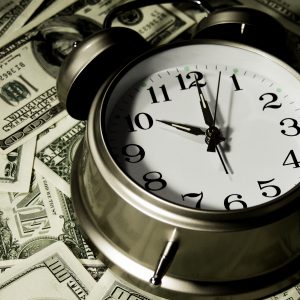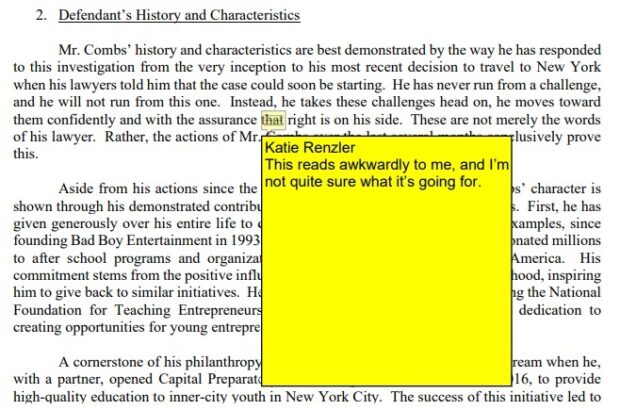Since
childhood,
Loveness
Bhitoni
has
collected
fruit
from
the
gigantic
baobab
trees
surrounding
her
homestead
in Zimbabwe to
add
variety
to
the
family’s
staple
corn
and
millet
diet.
The
50-year-old
Bhitoni
never
saw
them
as
a
source
of
cash,
until
now.
Climate
change-induced
droughts have
decimated
her
crops.
Meanwhile,
the
world
has
a
growing
appetite
for
the
fruit
of
the
drought-resistant
baobab
as
a
natural
health
food.
Bhitoni
wakes
before
dawn
to
go
foraging
for
baobab
fruit,
sometimes
walking
barefoot
though
hot,
thorny
landscapes
with
the
risk
of
wildlife
attacks.
She
gathers
sacks
of
the
hard-shelled
fruit
from
the
ancient
trees
and
sells
them
on
to
industrial
food
processors
or
individual
buyers
from
the
city.
The
baobab
trade,
which
took
root
in
her
area
in
2018,
would
previously
supplement
things
like
children’s
school
fees
and
clothing
for
locals
of
the
small
town
of
Kotwa
in
northeastern
Zimbabwe.
Now,
it’s
a
matter
of
survival
following the
latest
devastating
drought in
southern
Africa,
worsened
by
the
El
Niño
weather
phenomenon.
“We
are
only
able
to
buy
corn
and
salt,”
Bhitoni
said
after
a
long
day’s
harvest.
“Cooking
oil
is
a
luxury
because
the
money
is
simply
not
enough.
Sometimes
I
spend
a
month
without
buying
a
bar
of
soap.
I
can’t
even
talk
of
school
fees
or
children’s
clothes.”
The
global
market
for
baobab
products
has
spiked,
turning
rural
African
areas
with
an
abundance
of
the
trees
into
source
markets.
The
trees,
known
for
surviving
even
under
severe
conditions
like
drought
or
fire,
need
more
than
20
years
to
start
producing
fruit
and
aren’t
cultivated
but
foraged.
Tens
of
thousands
of
rural
people
like
Bhitoni
have
emerged
to
feed
the
need.
The
African
Baobab
Alliance,
with
members
across
the
continent’s
baobab
producing
countries,
projects
that
more
than
1
million
rural
African
women
could
reap
economic
benefits
from
the
fruit,
which
remains
fresh
for
long
periods
because
of
its
thick
shell.
The
alliance’s
members
train
locals
on
food
safety.
They
also
encourage
people
to
collect
the
fruit,
which
can
grow
to
8
inches
(20
centimeters)
wide
and
21
inches
(53
centimeters)
long,
from
the
ground
rather
than
the
hazardous
work
of
climbing
the
enormous,
thick-trunked
trees.
Many,
especially
men,
still
do,
however.
Native
to
the
African
continent,
the
baobab
is
known
as
the
“tree
of
life”
for
its
resilience
and
is
found
from
South
Africa
to
Kenya
to
Sudan
and
Senegal.
Zimbabwe
has
about
5
million
of
the
trees,
according
to
Zimtrade,
a
government
export
agency.
But
the
baobab’s
health
benefits
long
went
unnoticed
elsewhere.
Gus
Le
Breton,
a
pioneer
of
the
industry,
remembers
the
early
days.
“Baobab
did
not
develop
into
a
globally
traded
and
known
superfood
by
accident,”
said
Le
Breton,
recalling
years
of
regulatory,
safety
and
toxicology
testing
to
convince
authorities
in
the
European
Union
and
United
States
to
approve
it.
“It
was
ridiculous
because
the
baobab
fruit
has
been
consumed
in
Africa
safely
for
thousands
and
thousands
of
years,”
said
Le
Breton,
an
ethnobotanist
specializing
in
African
plants
used
for
food
and
medicine.
Studies
have
shown
that
the
baobab
fruit
has
several
health
benefits
as
an
antioxidant,
and
a
source
of
vitamin
C
and
essential
minerals
such
as
zinc,
potassium
and
magnesium.
The
U.S.
legalized
the
import
of
baobab
powder
as
a
food
and
beverage
ingredient
in
2009,
a
year
after
the
EU.
But
getting
foreign
taste
buds
to
accept
the
sharp,
tart-like
taste
took
repeated
trips
to
Western
and
Asian
countries.
“No
one
had
ever
heard
of
it,
they
didn’t
know
how
to
pronounce
its
name.
It
took
us
a
long
time,”
Le
Breton
said.
The
tree
is
pronounced
BAY-uh-bab.
Together
with
China,
the
U.S.
and
Europe
now
account
for
baobab
powder’s
biggest
markets.
The
Dutch
government’s
Center
for
the
Promotion
of
Imports
says
the
global
market
could
reach
$10
billion
by
2027.
Le
Breton
says
his
association
projects
a
200%
growth
in
global
demand
between
2025
and
2030,
and
is
also
looking
at
increasing
consumption
among
Africa’s
increasingly
health-conscious
urbanites.
Companies
such
as
Coca-Cola
and
Pepsi
have
opened
product
lines
promoting
baobab
ingredients.
In
Europe,
the
powder
is
hyped
by
some
as
having
“real
star
qualities”
and
is
used
to
flavor
beverages,
cereals,
yogurt,
snack
bars
and
other
items.
A
packet
of
a
kilogram
(2.2
pound)
of
baobab
powder
sells
for
around
27
euros
(about
$30)
in
Germany.
In
the
United
Kingdom,
a
100-milliliter
(3.38-ounce)
bottle
of
baobab
beauty
oil
can
fetch
25
pounds
(about
$33).
The
growing
industry
is
on
display
at
a
processing
plant
in
Zimbabwe,
where
baobab
pulp
is
bagged
separately
from
the
seeds.
Each
bag
has
a
tag
tracing
it
to
the
harvester
who
sold
it.
Outside
the
factory,
the
hard
shells
are
turned
into
biochar,
an
ash
given
to
farmers
for
free
to
make
organic
compost.
Harvesters
like
Bhitoni
say
they
can
only
dream
of
affording
the
commercial
products
the
fruit
becomes.
She
earns
17
cents
for
every
kilogram
of
the
fruit
and
she
can
spend
up
to
eight
hours
a
day
walking
through
the
sunbaked
savanna.
She
has
exhausted
the
trees
nearby.
“The
fruit
is
in
demand,
but
the
trees
did
not
produce
much
this
year,
so
sometimes
I
return
without
filling
up
a
single
sack,”
Bhitoni
said.
“I
need
five
sacks
to
get
enough
money
to
buy
a
10-kilogram
(22-pound)
packet
of
cornmeal.”
Some
individual
buyers
who
feed
a
growing
market
for
the
powder
in
Zimbabwe’s
urban
areas
prey
on
residents’
drought-induced
hunger,
offering
cornmeal
in
exchange
for
seven
20-liter
(around
4-gallon)
buckets
of
cracked
fruit,
she
said.
“People
have
no
choice
because
they
have
nothing,”
said
Kingstone
Shero,
the
local
councilor.
“The
buyers
are
imposing
prices
on
us
and
we
don’t
have
the
capacity
to
resist
because
of
hunger.”
Le
Breton
sees
better
prices
ahead
as
the
market
expands.
“I
think
that
the
market
has
grown
significantly,
(but)
I
don’t
think
it
has
grown
exponentially.
It’s
been
fairly
steady
growth,”
he
said.
“I
believe
at
some
point
that
it
will
increase
in
value
as
well.
And
at
that
point,
then
I
think
that
the
harvesters
will
really
start
to
be
earning
some
serious
income
from
the
harvesting
and
sale
of
this
really
truly
remarkable
fruit.”.
Zimtrade,
the
government
export
agency,
has
lamented
the
low
prices
paid
to
baobab
pickers
and
says
it’s
looking
at
partnering
with
rural
women
to
set
up
processing
plants.
The
difficult
situation
is
likely
to
continue
due
to
a
lack
of
negotiating
power
by
fruit
pickers,
some
of
them
children,
said
Prosper
Chitambara,
a
development
economist
based
in
Zimbabwe’s
capital,
Harare.
On
a
recent
day,
Bhitoni
walked
from
one
baobab
tree
to
the
next.
She
carefully
examined
each
fruit
before
leaving
the
smaller
ones
for
wild
animals
such
as
baboons
and
elephants
to
eat
—
an
age-old
tradition.
“It
is
tough
work,
but
the
buyers
don’t
even
understand
this
when
we
ask
them
to
increase
prices,”
she
said.
Post
published
in:
Featured







 Jordan
Jordan


 Chris
Chris
 Kathryn
Kathryn




